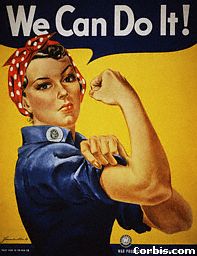
Home Sweet Home
Though I would never wish it on another child, I am not sorry that I was a child of the depression. I learned to value money and to treasure the things I have. A few additional glimpses into the past will add to the understanding of what it was really like then.
We lost what my mother always referred to as her "dream home" in 1930. It was a two story home on Jeannette Avenue, and she lamented the loss forever. We were fortunate, however, for we soon had another home and felt lucky to have a roof over our heads. Daddy did oilfield hauling for a Wichita oilman named George W. Hinkle. He sold my father a small two bedroom house on North Santa Fe. He sold it to him for $3000. Then he allowed him to "work out" the payments. What that meant was that when Daddy did hauling for Mr. Hinkle, he didn't get paid for it, the payment instead went toward the debt of $3000 that he owed on the house. It was always a matter of tremendous pride for Mother and Daddy that Daddy's work paid for the house in three years time. A major accomplishment, indeed. It was comforting to live in a house and have no rent to pay. Daddy fairly worked his fingers to the bone to do it of course, but no sacrifice was too great to make sure that his family was safe and warm and that he was out of debt.
Daddy deplored the idea of credit and scrupulously avoided being in debt at all. Mr. Hinkle was often our benefactor. Almost every winter he butchered beef on his farm and one year he gave our family a quarter of beef. It was a bonanza! We had no freezer, of course, and no money to rent a frozen food locker. So Mother and Daddy learned how to can beef. It was all canned; steaks, roasts and all in Mason glass jars. I'll never forget how comforting all those glass jars of beef looked lined up on the shelves in the kitchen and in the cellar. We had meat all winter from the beef that Mr. Hinkle gave us, and began to eat better than we had for years. Giving us a quarter of beef became a tradition with Mr. Hinkle. He bestowed the gift on us every year. After a few years my parents were able to rent a locker to keep the beef in, so that steaks and hamburger really tasted like steaks and hamburger, for a change. I will always be grateful for Mr. Hinkle's generous gifts to our family. I would not have known what meat tasted like, but for him.
We also often subsisted on Government Commodities. This was a subsidy program of the federal government. Government trucks would come to town to a particular distribution point. Those who wanted food could go to the location of the truck and get free food. As I recall, Commodities came two or three times a year. The food was always in half-gallon or gallon cans, and always consisted of a single item. Daddy might come home with ten cans of green gage plums or 10 cans of green beans, or corn or peaches or whatever. No matter what the cans contained, that's what we ate for weeks. I remember many a meal that consisted of bread and plums, nothing more. It was good food and we were glad to have it. After George Hinkle gave us beef, however, we always had some kind of meat at least two or three times a week, and always on Sunday!
When my mother died in about 1981 my sister, brother and I discovered a note from Daddy written to her sometime in the 30's. She had saved the note in her cedar chest. It read:
"Dear Pearl, I am sending you $2.00. Pay 50 cents on the water bill, 50 cents on the gas bill and 50 cents on the electric bill. Use the rest for anything that you and the girls need.
Hope things are going OK. Love, Jim."
